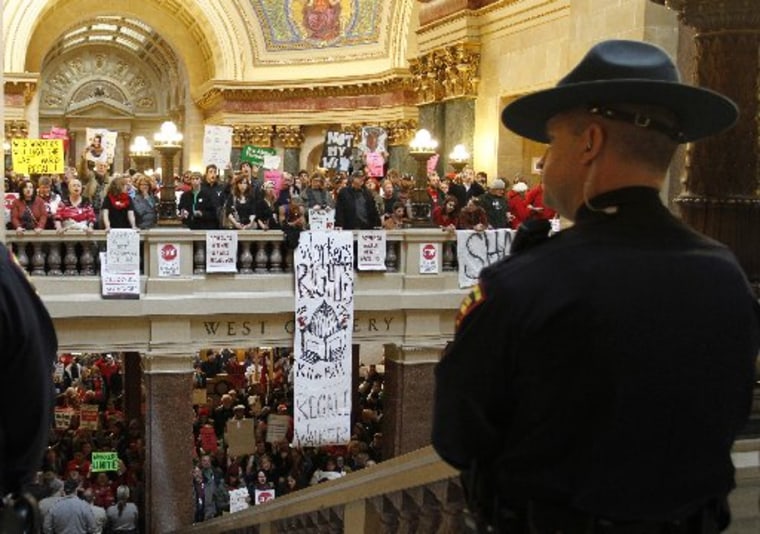Tensions between Wisconsin's labor unions and the state GOP may have temporarily subsided, but they might soon escalate again. Republicans in the state assembly have proposed a bill that would allow some private employers to unilaterally cut unionized workers' hours.
Assembly Bill 15 would establish a work-sharing program intended to reduce layoffs. Under the state work-sharing programs made possible by the Middle Class Tax Relief and Job Creation Act of 2012, employers can save money by reducing the hours of full-time workers, who will then receive unemployment insurance to make up some of the difference.
"This legislation is intended to help the thousands of unemployed workers stay on the job while receiving some unemployment insurance," said Republican State Rep. Ed Brooks, one of the authors of the bill, in a statement. "The goal is to keep people employed during difficult economic times."
Twenty-four other states have thus far instituted work-sharing programs, but only Minnesota waives the requirement for employers in unionized workplaces to negotiate hour reductions with union representatives. State Senator Julie Lassa, a Democrat, proposed a Wisconsin work-sharing program in mid-January, though her version of the bill would have required bosses to negotiate with their workers' unions. State senate Democrats say that the Republican work-sharing proposal, introduced a month later, is nearly identical to Lassa's—but with the union protections stripped out of it.
“It is the most extreme form of partisanship to refuse to sign onto a bill because it has a Democratic author and then try to rebrand the idea as the GOP’s own," said state senate Democratic minority leader Chris Larson in a statement. "Senate and Assembly Republicans have made it clear they lack a willingness to work with Democrats on behalf of Wisconsin’s middle class families."
Matt Rotschild, editor of the Wisconsin-based publication The Progressive, told msnbc that Republican Governor Scott Walker had been emboldened by the labor movement's failed attempt to depose him in a 2012 recall election. Labor backed a gubernatorial recall in retaliation for Walker's successful campaign against public sector collective bargaining rights.
"There's no doubt that [Walker] understands that he has more power in his hands today than he did the day he pushed through the assault on public sector workers two years ago," said Rothschild. He also speculated that there would be more Republican broadsides against the labor movement to come.
"I suspect that Governor Walker, before he leaves office, this term or next, will push or try to push through a right to work bill," said Rothschild. "He is savagely opposed to labor rights, and he is carrying water for the most anti-worker business owners in the state and the country."
A spokesperson for Rep. Brooks said that the representative had not spoken with Governor Walker about the work-sharing bill.
